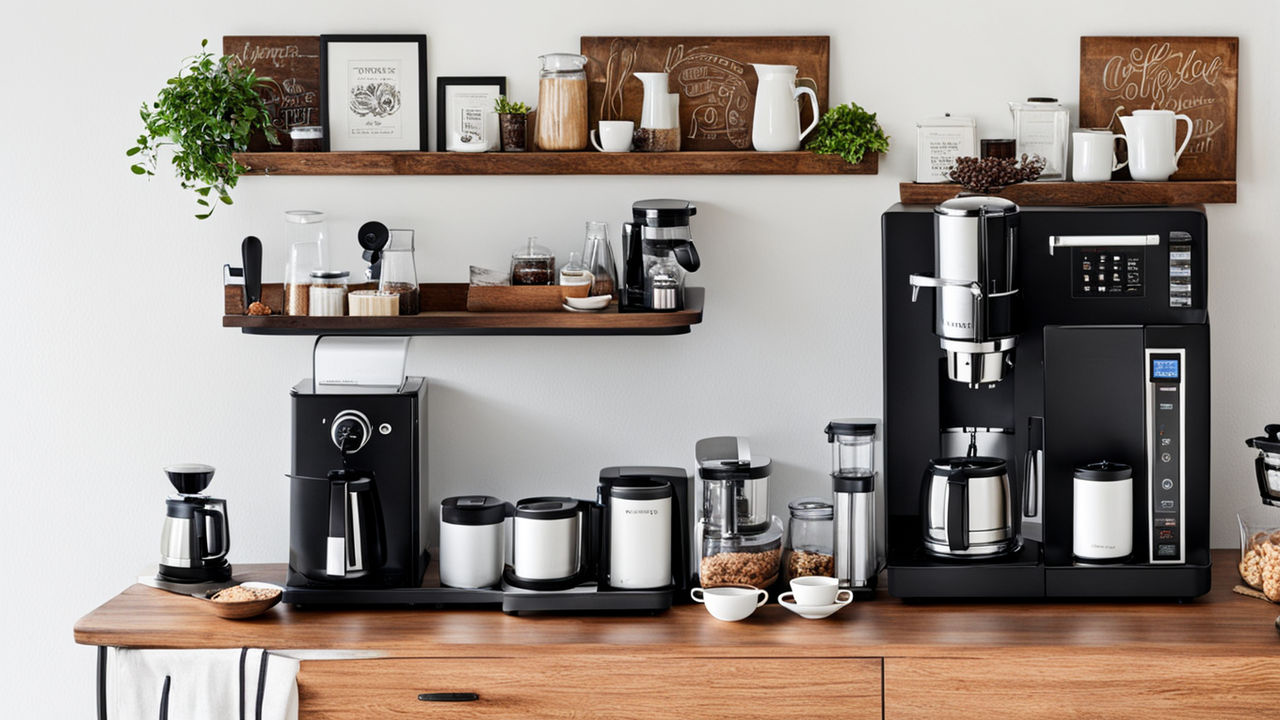Simple Money Saving Tips For Teens & Tweens to Boost Bank Balance Faster than ever - Learning from other peoples' Money Mistakes Before it is too late
Most of us have some money regrets (oh, how I wish I'd switched to a prepaid cell phone plan years ago instead of spending so much on my phone). We often think about how much we could have saved if only we'd adopted certain habits earlier. Recently, I stumbled upon a social media thread where frugal people shared the money-saving habits they now follow but wish they'd started sooner. Here’s a collection of those practical and other solid ideas that could help you save more money, starting today.
1. Making Your Own Lunch
Instead of going out to restaurants every day, try making your own lunch. It’s a simple switch that can save you a significant amount of money over time. Not only do you cut down on the daily expense, but you also have better control over what you eat, which can lead to healthier choices.
2. Investing in a Roth IRA
Putting $100 a month into a Roth IRA with some good mutual funds spread across types can average over 8% yearly. Even if you can't contribute a full $100, starting with what you can is still beneficial. The earlier you start, the more time your money has to grow, making it a powerful tool for building wealth.
3. Shopping Around for Car Insurance
Shopping around for car insurance—and honestly, any recurring payments and services—can lead to surprising savings. Companies often offer better deals to new customers, so it’s worth comparing rates every year.
4. Brewing Coffee at Home

Learning how to make your favorite coffee at home can be a game-changer for your budget. By investing in a high-quality coffee maker and a durable thermos cup, you can enjoy your daily brew without the hefty price tag of coffee shop visits. Over time, those $2-$5 daily expenses add up, costing you hundreds or even thousands annually. Plus, making coffee at home not only saves money but also allows you to customize your drink to perfection, creating a more satisfying experience every morning.
5. Buying Classic, Timeless Clothes
Instead of chasing trends, focus on buying classic, timeless clothes. These pieces tend to last longer and stay in style, saving you money in the long run. You’ll also spend less time and money updating your wardrobe every season.
6. Learning to Mend and Care for Clothes
Not for everyone but if one can, learning how to properly care for and mend your clothes can extend their lifespan significantly. This means fewer trips to the store and less money spent on replacements. Whether it’s sewing on a button or patching a tear, these small skills can add up to big savings.
7. Living Car-Free (If Possible)
Going car-free isn’t an option for everyone, but if it is, it can save you a substantial amount of money. Think about the costs associated with owning a car—insurance, gas, maintenance, and parking. In post covid era, these can take a big chunk out of your potential savings. So much so that in some cases, it may be cheaper to take UBER or lyft few times a weak than to own the car. If you can walk, bike, or use public transportation instead, you’ll save a lot of money over time.
8. Avoiding Boredom Spending
Spending money because you’re bored is a common habit, but it’s also a costly one. Try to find other ways to occupy your time that don’t involve shopping or dining out. Whether it’s reading, exercising, or picking up a hobby, avoiding boredom spending can save you a surprising amount of money. Also when going grocery shopping, make sure you don't do iit empty stomach. Thats when you do your all hard to resist and unnecessary shopping of junk food etc.
9. Tracking Your Finances
Track your finances down to the penny. Use an app like Rocket Money, and keep only what you need for bills in your checking account. Immediately transfer anything extra to a high-yield savings account (HYSA). There are banks offering up to 5% APY for savings, allowing your money to work for you.
10. Cooking Ethnic Foods at Home
Learning to cook more ethnic foods at home can be a delicious way to save money. These recipes often use less expensive meats and ingredients, yet they are still nutritious and filling. For example, instead of spending $12-15 + tax (and now a days they expect you to pay tip even on a take out) on takeout for beef and broccoli stir-fry all the time, you could make four portions at home for the same price in no time at all. If you are taking take out 5-6 times a week, cutting out just two of these can save you close to $1500 a year.
11. Quit Smoking
If you smoke, even casually, first thought will be to just Quit. Smoking is not just harmful to your health, but it also burns a hole in your wallet. For additive smokers this is a huge expense. Think about how much money you could save if you quit smoking, or better yet, if you had never started. The long-term financial benefits are huge, not to mention the health benefits.
12. Saving Aggressively in Your Teens and 20s
When you’re young and don’t have many financial responsibilities, it’s the perfect time to save aggressively. If you’re living at home and don’t have a car payment yet, try to save 80-90% of your income. This is how I partly paid for my college. You could quickly build up a substantial savings account, which will help you later in life.
13. Taking Advantage of Student Discounts
If you’re a student, make sure you’re taking full advantage of the discounts available to you. Many places offer student discounts, and those small savings can add up over time. From software subscriptions to clothing, don’t hesitate to use your student ID wherever you can. Also, if you shop at a specific place on a regular basis such as subway, Panera bread, Starbucks etc. using rewards cards can save you lot of money.
14. Avoiding Recurring Fees
Recurring fees for small things like apps, extra TV channels, or other subscriptions can quietly eat away at your budget. Take a close look at your monthly bills and see what you can cut out. You’d be surprised how much money you can save by eliminating a few unnecessary expenses.

15. Using Rewards Credit Cards Wisely
Using rewards credit cards can be a great way to earn cash back or other rewards, but only if you use them wisely. Make sure to pay off the balance every month to avoid interest charges. By using a card that fits your spending habits, you can actually make money from your purchases.
16. Setting Up a Separate Email for Spam
If you’re frequently signing up for promotions or requesting quotes, create a separate email account just for those purposes. This way, your main inbox won’t be flooded with spam, and you’ll still be able to take advantage of deals without being overwhelmed.
17. Avoiding Convenience Store Purchases
Try not to spend money inside convenience stores unless it’s an emergency. Even small purchases can add up quickly. Buy gas at the pump and avoid going inside for drinks, snacks, or other impulse buys. Snacks and drinks are expensive to begin with, gas station markups on top of that can really burn a whole in your pocket. However, some local convenience store/gas chains in your area like Stewarts in upstate New York that may specialize in some daily grocery items like milk and ice creme and can offer you great deals besides cheaper gas compared to others. So, stopping there for cheaper gas and these items may be worth it.
18. Implementing No-Spend Days
Well, it didn't work for me consistently, but I was able to Commit to having two or three no-spend days each week on somewhat infrequent basis and it was extremely helpful. You’ll be surprised at how much you save by simply not spending money for a few days. It also helps curb impulse buying and makes you more mindful of your spending habits.
19. Try Buy used Before Jumping to Buying Everything New
Some things such as wooden furniture, home decor items can be bought second hand. Before purchasing something new, check platforms like Facebook Marketplace or OfferUp. You might find what you’re looking for at a fraction of the cost. Many items are barely used and in great condition, making it a win-win situation.
20. Taking Care of Your Teeth
Taking care of your teeth by brushing and flossing regularly will save you tens of thousands of dollars in dental care later on. Preventative care is much cheaper than dealing with cavities, gum disease, or other dental issues down the road.
Conclusion
These 20 simple money-saving habits may seem small, but they can add up to significant savings over time. Whether it’s packing your lunch, brewing your coffee at home, or quitting smoking, every little bit helps. The earlier you start, the more you can save, and the better off you’ll be in the long run. So why not give these tips a try? You might be surprised at how much you can save.
---
FAQs - Frequently Asked Questions
1. How soon can I see the benefits of these money-saving habits?
You can start seeing benefits almost immediately with habits like making your own lunch or brewing coffee at home. For long-term savings like a Roth IRA, the benefits compound over time, so the sooner you start, the better.
2. Is it realistic to commit to two or three no-spend days each week?
Yes, it’s realistic and manageable! Start by planning your week ahead of time and ensuring you have what you need on hand. Over time, no-spend days can become a natural part of your routine.
3. How can I start saving aggressively when I’m young?
If you’re still living at home or have fewer financial responsibilities, try saving as much of your income as possible. Set a high savings goal, like 80-90%, and track your progress. It’s easier to save more when you have fewer expenses.
4. What’s the best way to find deals on Facebook Marketplace?
Search for specific items, set alerts for things you’re interested in, and be patient. Good deals pop up regularly, so check often and be ready to act quickly if you find something you need.
5. Why is it important to take care of my teeth?
Dental care is expensive, and preventative care is the best way to avoid costly treatments in the future. Regular brushing and flossing can prevent cavities, gum disease, and other dental issues, saving you money and pain later on.

